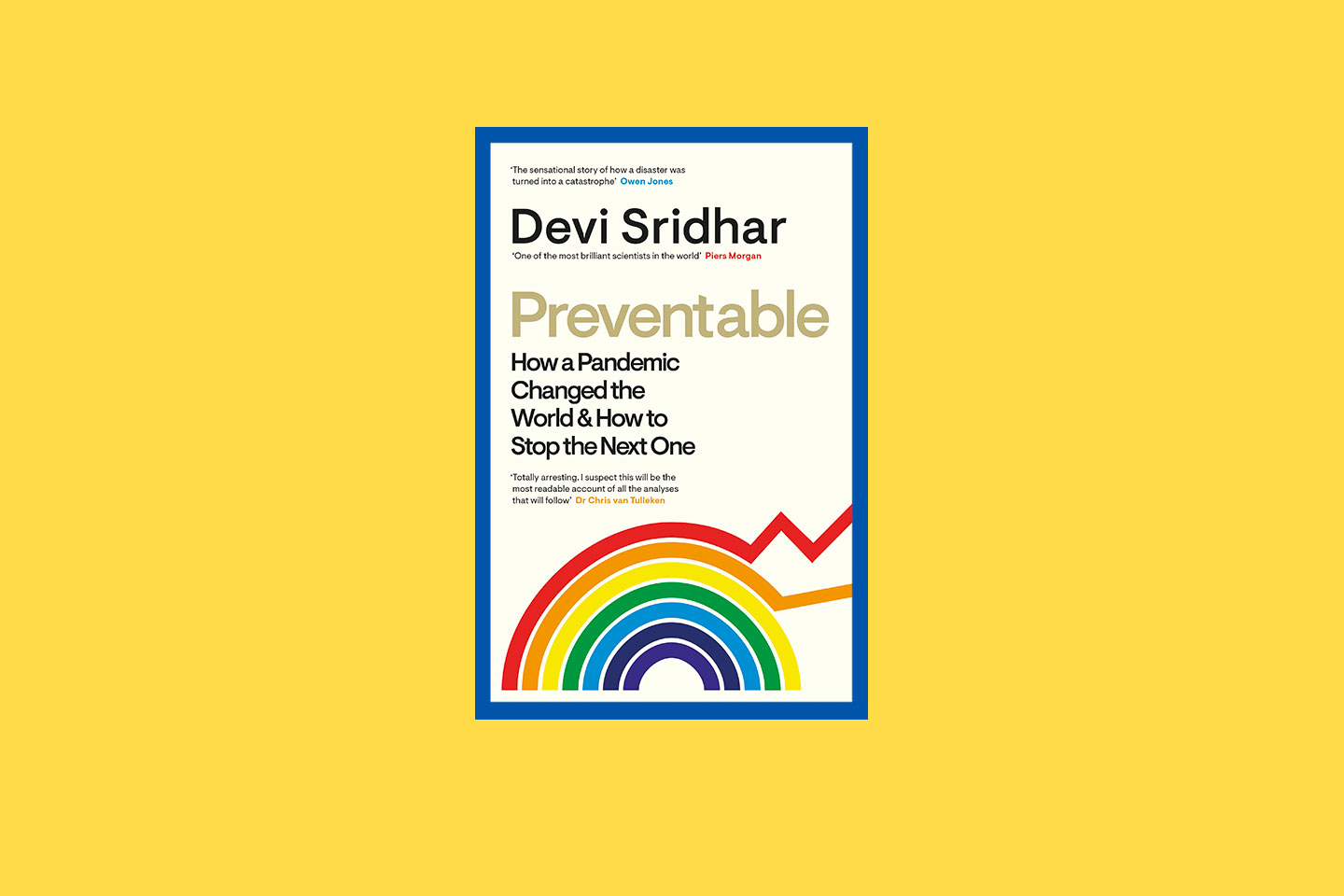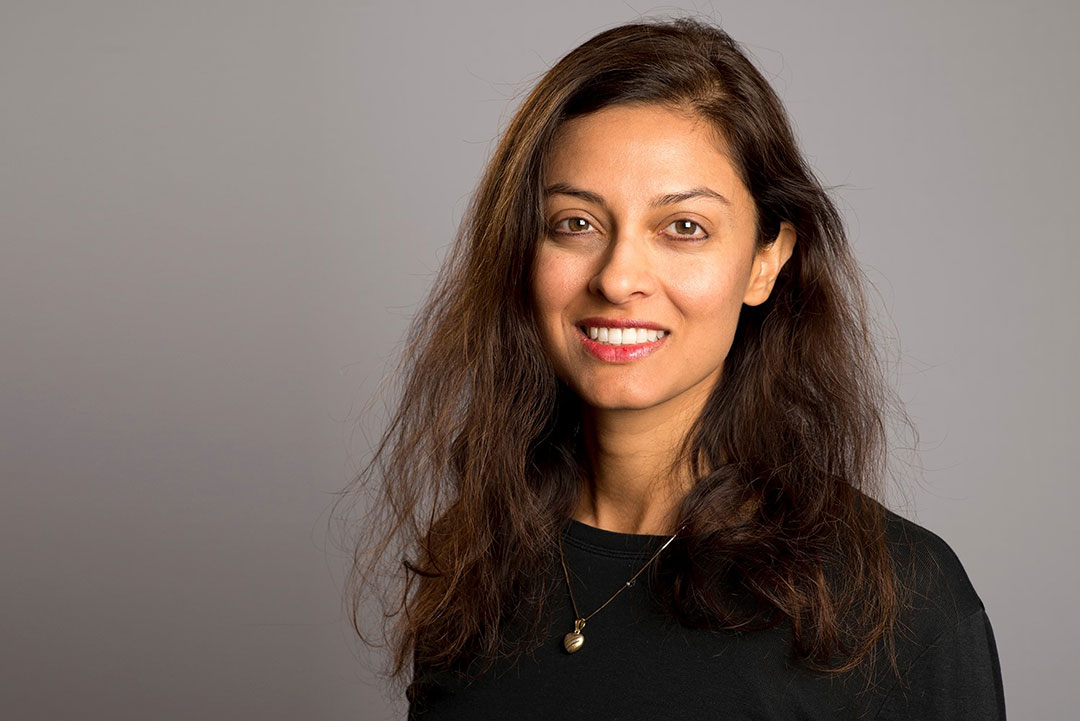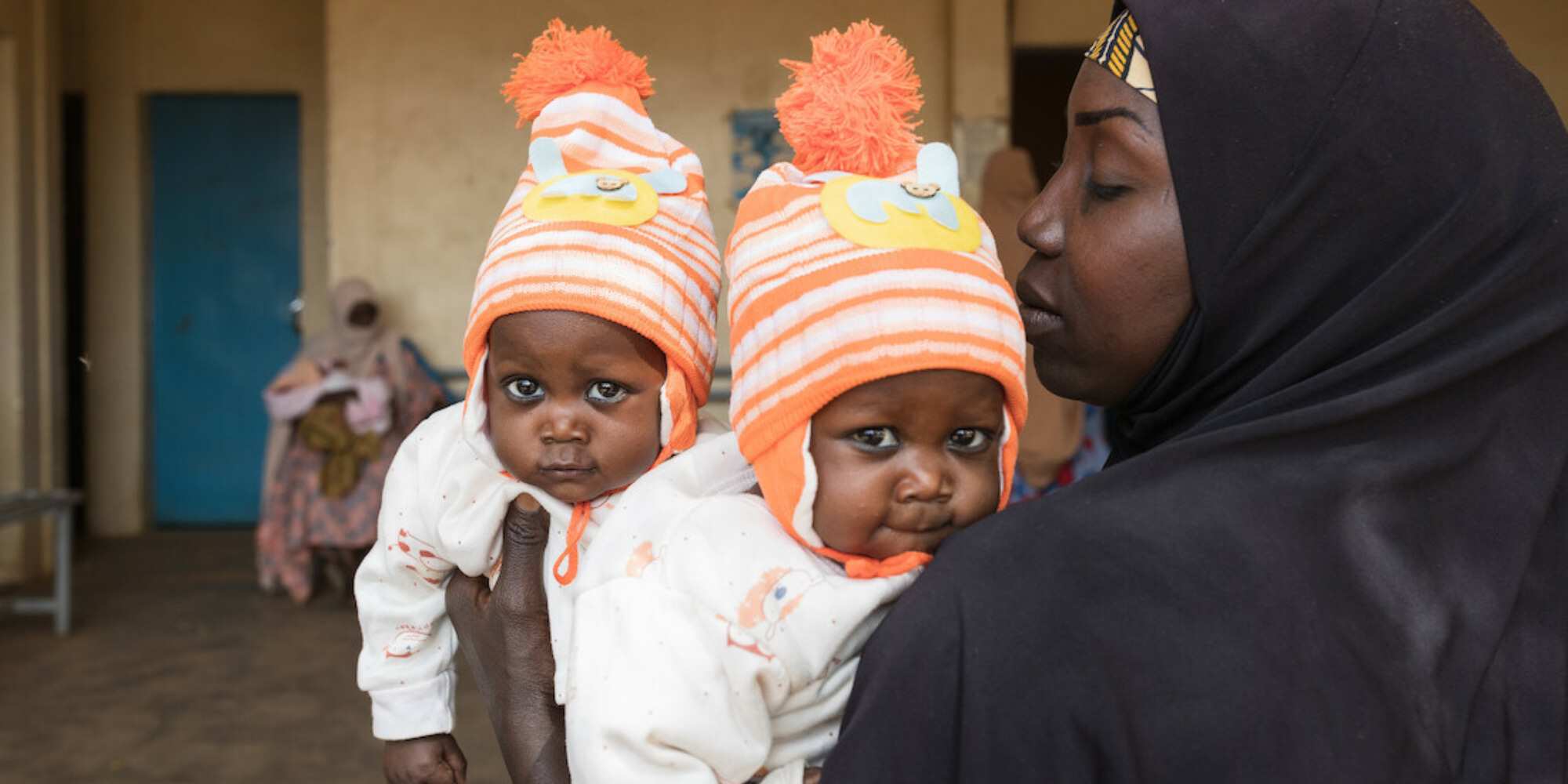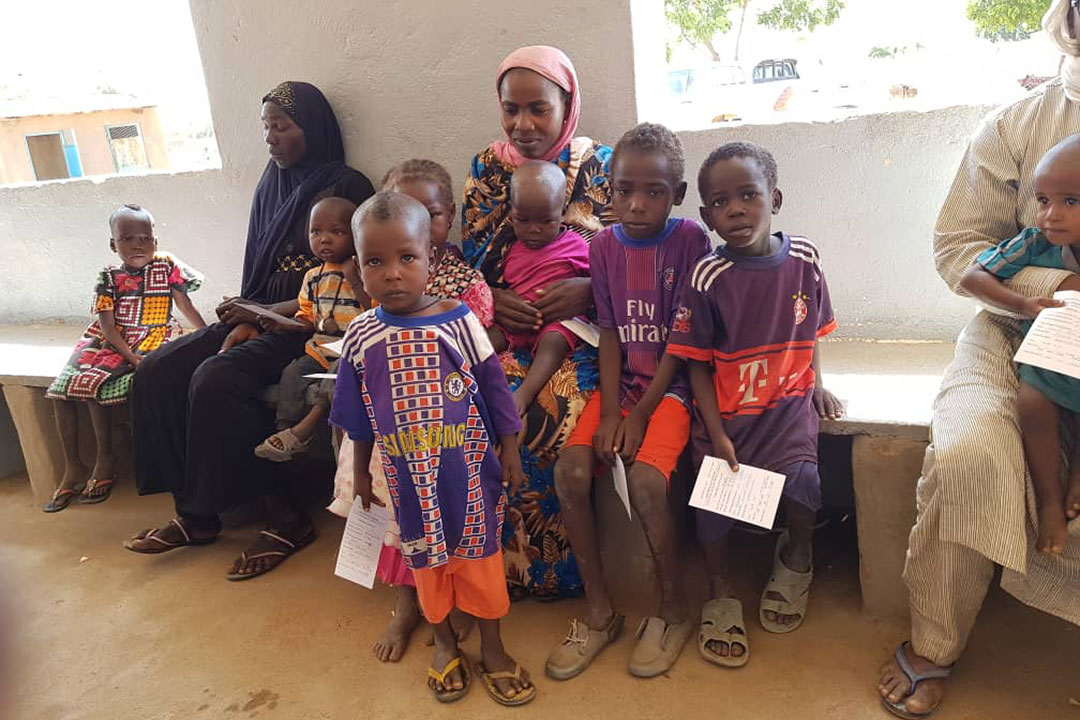Q&A: Preventable
Professor Devi Sridhar’s Preventable is a comprehensive look at the COVID-19 pandemic – what we got right and, more importantly, what we got wrong. VaccinesWork spoke to the author about the lessons we should learn from the past two years.
- 25 April 2022
- 9 min read
- by Assa Samaké-Roman

Preventable (Penguin, 2022) is one of this spring’s most anticipated books. Professor Devi Sridhar, Chair of Global Public Health at the University of Edinburgh, tells the gripping, often tragic story of the COVID-19 pandemic, detailing the successes and challenges that countries all around the world have encountered. In the end, there’s hope: that we can learn from our mistakes and be better prepared when the next pandemic hits us.
There’s a degree of complacency in saying “you keep threatening and crying wolf”, but now we’ve seen that this has happened, I think we will do better next time.

What was the genesis of the book?
I was actually writing a book before COVID- 19 hit. I wanted to write about the animal health world and human health. So many of the things that threaten humans – whether it’s anti-microbial resistance or pathogens like Zika or polio – come from our relationship with the animal kingdom. Then COVID-19 hit and that kind of got frozen. So, I converted it first into an academic book about the pandemic, for students and for researchers. But then, as more public interest grew, I thought I’d try to write it, if I can, for a popular audience, so anyone could understand it.
Hopefully, in 10 years, people can read it and understand what we have lived through, what happened in these two years so far, what different countries have done, as a documentation of what happened and why.
Is it too soon to write about the pandemic, as we are still experiencing it?
There‘s going to be a whole range of analyses that come out – some have come out after a few months – after a few years. This book takes us up to Omicron, but also the vaccine inequalities we’ve seen as different countries are being left behind. And where it really ends is – it’s becoming a traditional global health issue where the rich world seems to have left the pandemic behind, using a lot of technologies, through hospitals, oxygen, antivirals, vaccines, whereas poor countries are left behind because they’re not able to access those. This is the story of global health: think of measles, think of a range of diseases. It’s not just COVID.
That’s my take of where we are now. But I’m quite concerned about what I see as the rich world moving on, as we do with so many things, whereas there are a range of diseases that affect people all around the world that we just never think about here: malaria, TB, HIV are all massive health issues.
Do we suffer from collective memory loss when it comes to pandemics and how to prepare for them?
The whole first chapter of the book is laying out why we did see this one coming, and how we do have a lot of disease events. But most of them, like MERS, are contained at a regional level or a national level. Even SARS was limited in terms of the devastation it caused: it didn’t affect all parts of the world in the way COVID-19 has. SARS affected East Asia quite badly, but it didn’t cause devastation in Canada, or the United States, or across Africa. Places that have been hit hard in the past, like South Korea was hit by MERS or Hong Kong was hit by SARS, did react quite well because they understood what was coming.
In Africa, I talk about Senegal, because they had such great public health structures to respond to Ebola or polio. They just converted them to COVID-19 structures.
In the United States, Britain, and across Europe, that memory is so short, as we’ve just lived it. So, I do think it’s a different thing now because the last equivalent event is probably 1918, and that memory is long gone. More recently swine flu was kind of a near miss because there were all the projections that it would be a level six pandemic and cause so many deaths – and it didn’t happen.
There’s a degree of complacency in saying “you keep threatening and crying wolf”, but now we’ve seen that this has happened, I think we will do better next time. I think there’s a lot of understanding now of what can happen if you’re not ready.
My hope is that this renews the urgency of why we do vaccination and why we need to do it in all parts of the world, because it’s such an important tool.
There’s a feeling in richer countries that the pandemic is behind us. Is this going to be an issue, from a global health point of view?
Seventy percent vaccine access is a goal that the World Health Organisation (WHO) has stated. We should be working towards it. I am worried about the idea that we just shut off because it’s not happening here, instead of realising that now is the time, now we have bandwidth, to actually start engaging with other parts of the world and also thinking about things like regional manufacturing capacity.
I think this is the kind of conversation we need to be having, instead of constantly relying on charity, which we know has failed in a way, as a model, because rich countries just took more and more of the supply for themselves, especially when variants came and they said we need boosters, and now it looks like we probably need continual boosters. Just relying on waiting for this to be over, and then to be donating doses isn’t going to be, I think, a good way forward. We have to be thinking broader.
Have you read?
How would you qualify the international cooperation during this health crisis?
I think it's been excellent between scientists and quite poor between governments. We've seen that a lot of the progress we've made, especially scientifically, has been through collaboration: Chinese scientists, working with Australian scientists, with Americans, with Scottish scientists, to get the testing products, to get the vaccines developed. Even in the race for a vaccine, they knew one wouldn't be enough, so it wasn't like who would be first, it was how many can we get?
On the flip side, we’ve seen governments fracturing, whether it’s over PPE, whether it is the United States stealing ventilators on their way to Barbados, or trying to buy up all the IP rights for Remdesivir and all the supply. So you’ve seen countries really turning inwards to say we’re going to take care of ourselves and our people, which has been a step back from international cooperation, whether it’s been trying to acquire different products or whether it’s been even in the strategy of how you respond. Every country’s gone alone and tried to do its own thing.
Are you hopeful that this stage of the pandemic will give an opportunity to celebrate vaccination in general?
I hope so because, if nothing else, I think this is drawing attention to why we vaccinate, which is to prevent people getting sick and dying. I think we have forgotten that in rich countries. You’ve seen this with measles vaccination rates falling, not because of supply but because of this idea of hesitancy: people think they don’t see measles, so why do you need to vaccinate against something you don’t see?
So my hope is that this renews the urgency of why we do vaccination and why we need to do it in all parts of the world, because it’s such an important tool. But also, and I try to do it in my book, explaining what is a vaccine which I think a lot of people haven't thought about: it's almost like a training run before battle.
Everyone will have an opinion on you when you're out there, but you can't define yourself based on them. You define yourself based on the work you do and what you believe in.
On the flip side, there’s so much of a desire to move past health. There are other pressing issues, whether it’s conflict and war or climate change. I do wonder, sometimes, whether health is just going to go back to being at the bottom and then people will forget about how important vaccination is as the main tool in saving lives. Vaccines carry very rare side effects, but the side effects of a disease are much worse.
During the pandemic, you have not only advised governments, but put yourself out there, on social media, to educate people on public health. How’s that experience been for you?
Early on, there was a choice of whether to step back or step forward, and I chose to step forward. I don't regret it, I think it was an important role to play, because there's so much information and people were really confused so, hopefully, I’ve played a useful role. But, of course, as soon as you step forward and put your head a bit above the rest, you do get lots of shots that you take in.
I don't think it helps that I can be quite blunt, I have a sense of humour that doesn't always translate well, because of course it sometimes upsets people who don't understand your sense of humour. Everyone will have an opinion on you when you're out there, but you can't define yourself based on them. You define yourself based on the work you do and what you believe in. When I do get it wrong, I do hold up my hands and say that.
I do talk in the book about instances I got it wrong, trying to explain to people at different moments what we knew and why we were trying to make the decisions at each point. We’re all human, we’re not heroes, we’re not villains, we’re just people and we’re trying to do our best through this. That’s also what the book does at different points, to explain how difficult these issues were, and how there was no right answer, there were just trade-offs.
What gives you hope for the future?
I think the scientific progress and how much was made in such a short time. I remember at the start saying: imagine we have these rapid tests and people could know within 10 minutes if they were infectious. People said that stuff’s science-fiction. Lo and behold, we got there, and they are incredibly effective at finding people who are infectious and having your results quickly. Humans did that!
And vaccines too. Think how quickly they were trialled for safety and efficacy, how they trialled different doses and combinations to find the best one, how they got that done and got it out to the public within less than a year. For the antivirals and the other therapeutics at hospital, they were putting people into trials within days to understand what works, instead of giving them everything and then also looking at different pills, to say “How do we stop people going from mild illness to severe illness?”








